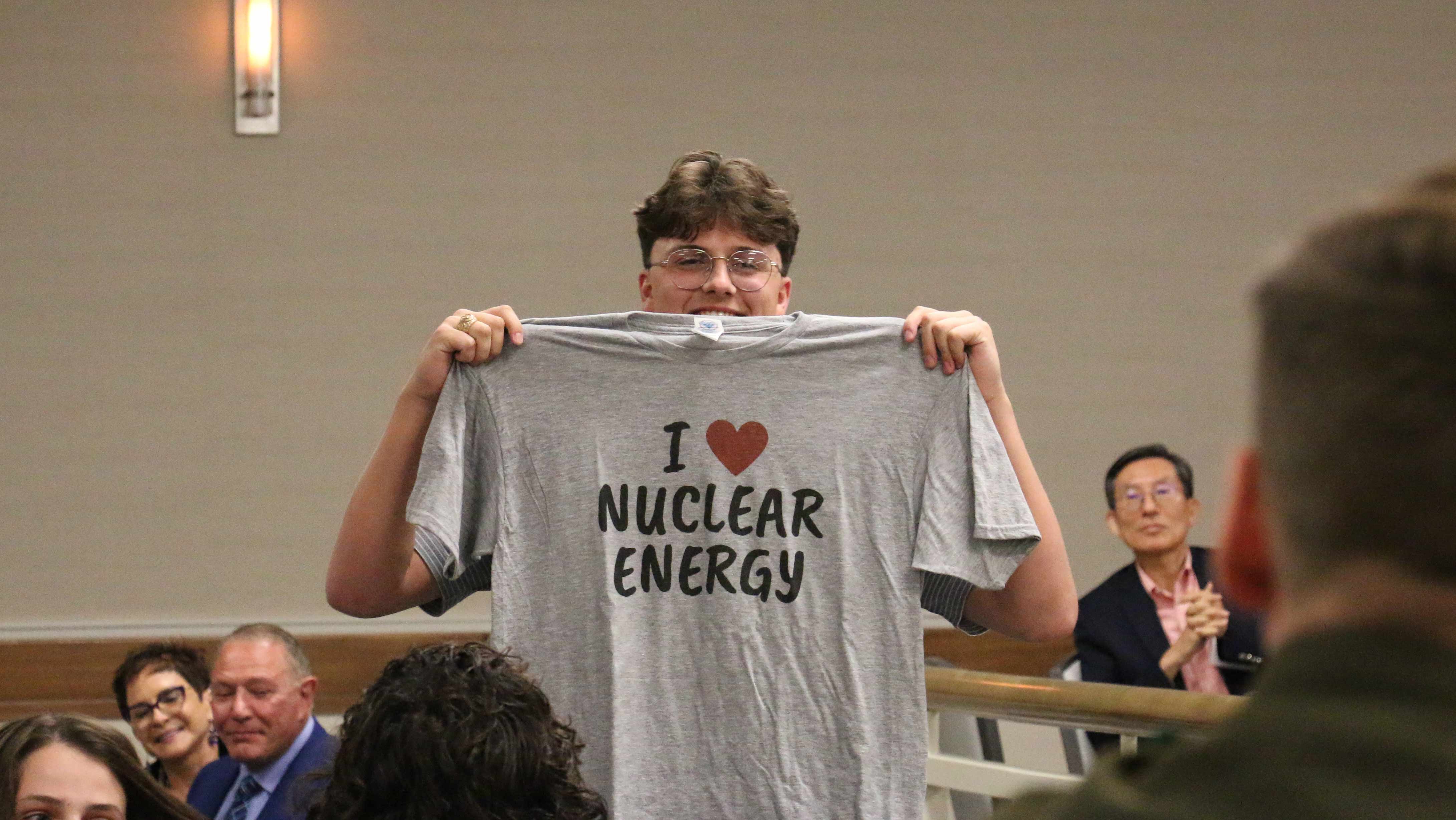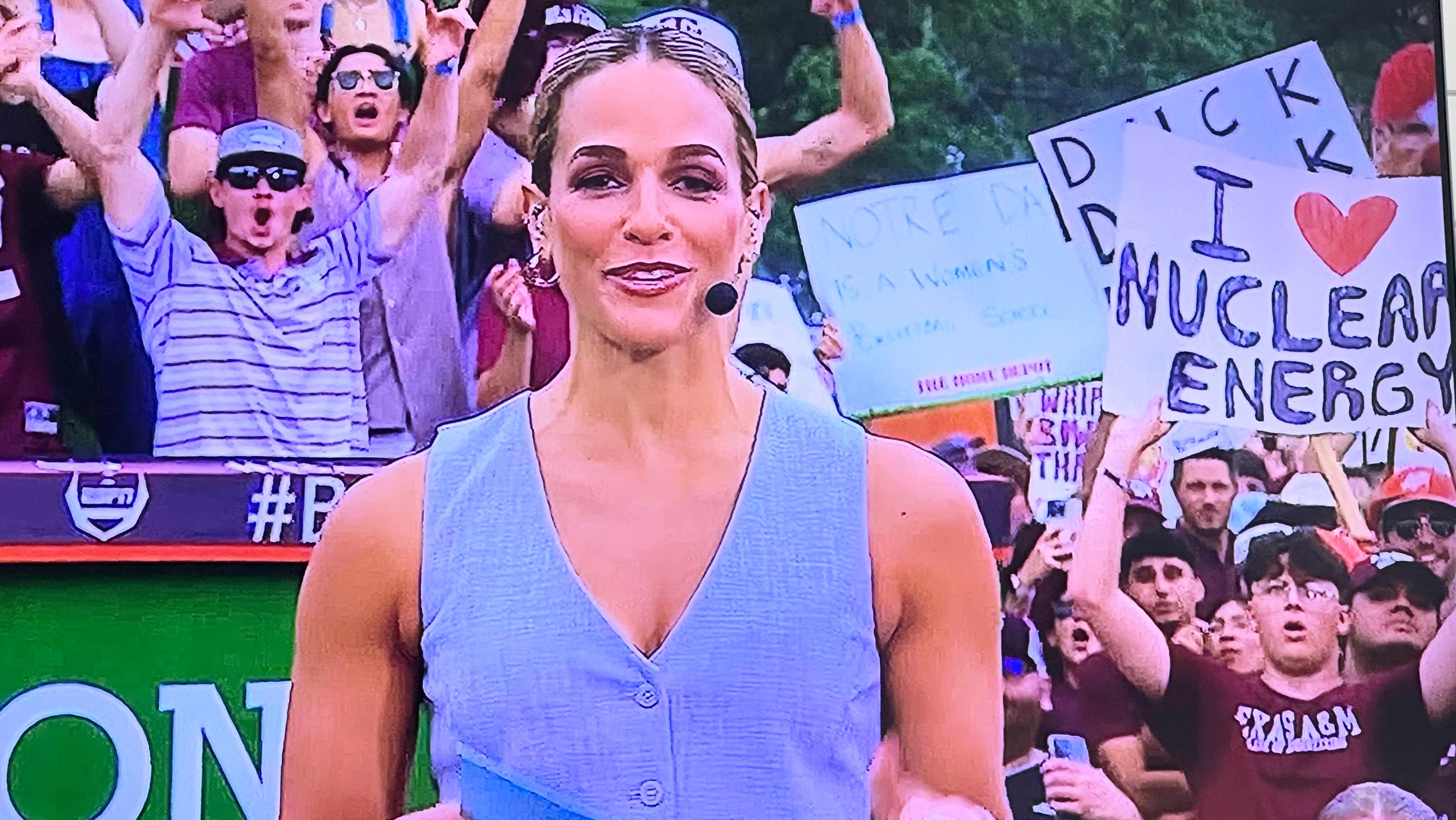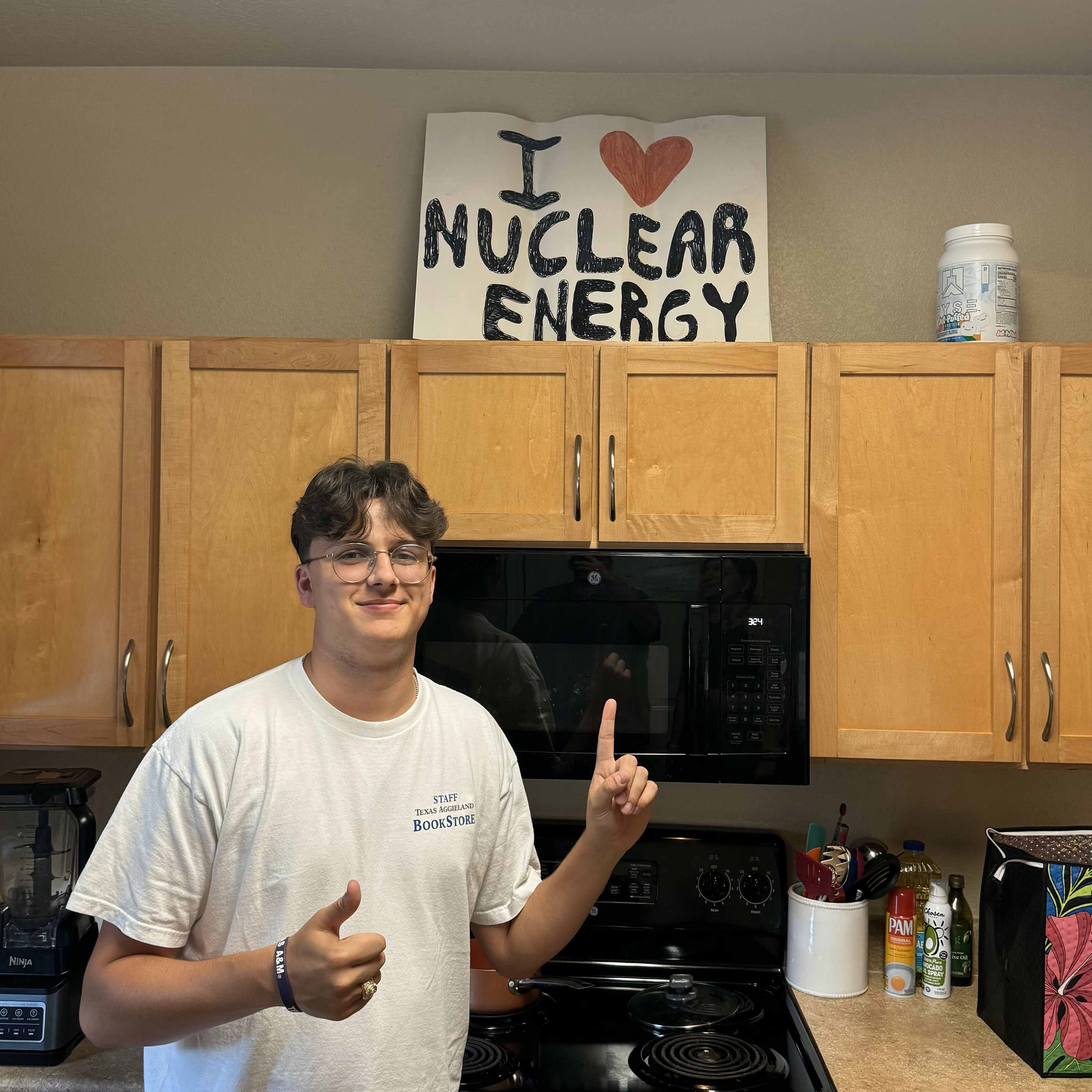
Running on only two hours of sleep and energized by lively music blaring through loudspeakers, Texas A&M nuclear engineering senior Gabriel Ivory navigated a dense crowd congregating near the stage for the College GameDay TV show, clutching a large paper sign reading “I ‘heart’ Nuclear Energy.”
As luck would have it, Ivory secured a place in the crowd with a path to the front. When a voice on a loudspeaker called for people with signs to come forward, Ivory wove through the crowd.
When he could glimpse Pat McAfee and the rest of the College GameDay cast members, he realized he was in the camera’s shot. Ivory raised his sign.
In the hours and days following the game, Ivory and his friends watched with excitement as his message spread, shared throughout the nuclear community on social media. Idaho National Laboratory shared an image of Ivory holding up his sign right behind GameDay reporter Jess Sims, prompting praise and excitement among the nuclear engineering community on social media. When College GameDay set up at Ann Arbor, a pro-nuclear sign by a University of Michigan student popped up in the crowd. When another sign showed up in College GameDay’s third episode at the University of South Carolina, the message lit up social media again.
Ivory — who became the Department of Nuclear Engineering’s Undergraduate of the Year this fall — had achieved his goal. His sign at Texas A&M had started a nationwide movement.
Throughout his nuclear engineering education, Ivory thought about ways to advocate for nuclear energy, and one of his ideas was to get the message on television. At the start of this semester, Veronica Annala, another nuclear engineering senior interested in nuclear advocacy, first proposed the idea of starting an advocacy-focused organization to Ivory. This was the start of the Nuclear Advocacy Resource Organization (NARO) at Texas A&M, with Annala as the president and Ivory as the vice president.

The idea to form NARO re-sparked Ivory’s idea of getting the message on television, which happened to coincide with College GameDay coming to College Station to cover the Notre Dame game on August 31. A week after NARO’s first meeting, Ivory spent that Friday evening making the sign before Midnight Yell. He didn’t get home until 2 a.m., then woke up at 4 a.m. to get a good spot in the crowd, eventually ending up in front of the College GameDay camera.
“I thought, ‘once somebody sees this, I hope people are going to talk about this,’” Ivory said.
Since his sign appeared on television with College GameDay, similar signs were spotted at the University of Michigan and the University of South Carolina in the following weeks, as well as at the University of Alabama and the University of California Berkeley. Ivory has enjoyed seeing people from other schools take up the trend.
“I'm very lucky to be enrolled at a university that is so supportive of its students, even beyond academia,” Ivory said. “Texas A&M is the most influential university in the nuclear industry space, and I am glad that a movement that was started here has swept the nation and opened eyes to what nuclear energy can do for our world.”
Sparking a wider conversation
With the formation of NARO, student-driven nuclear advocacy at Texas A&M is much broader than Ivory’s gameday sign. The student organization aims to address a need for more conversations about nuclear energy.
Annala realized the importance of nuclear advocacy after a conversation she had while studying abroad. Annala talked to a non-engineering peer who assumed that nuclear engineering is dangerous and used for weapons. Annala countered this assumption.
“With one conversation, her entire outlook on nuclear energy completely changed, and one conversation was able to undo all of the consistent negative biases that she has been getting,” Annala said.
When NARO first launched, it conducted a survey among more than 400 A&M students that reinforced Annala’s insights about how students feel about nuclear energy. Only 14 percent of the students surveyed were willing to live near a nuclear power plant, and nuclear was ranked the least safe energy source.

“Those results were not extremely surprising,” Annala said. “Other members of the organization were super surprised. I truly think that this is why we need NARO.”
Since then, NARO has hosted more activities to raise awareness of nuclear power. For example, they handed out hundreds of pieces of candy attached to facts about nuclear energy.
“We had students take them, read them, and then walk right back to us and ask, ‘Wait, is this true?’” Annala said. “Just a drop of information got them coming back for more.”
NARO takes a holistic approach to nuclear advocacy, Ivory said, which addresses the two main problems facing nuclear energy: lack of funding and public opposition due to misconceptions.
“The funding is pretty much figured out at this point,” Ivory said. “Now, we just need to do our part by not feeling afraid to talk about nuclear. People don't know enough about it, so they want to learn more.”
Although NARO began with nuclear engineering students, Annala said any student interested in nuclear energy can get involved with advocacy efforts, from English majors who can write tech memos to students who like to make videos.
“Nuclear energy is the future, not only in Texas, not only in the U.S., but in the world,” Annala said. “We need so many more majors than just nuclear engineers, so literally anyone has a place at NARO.”